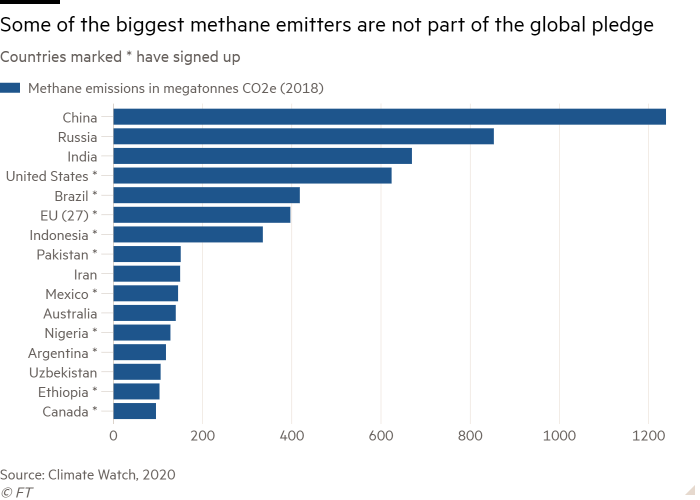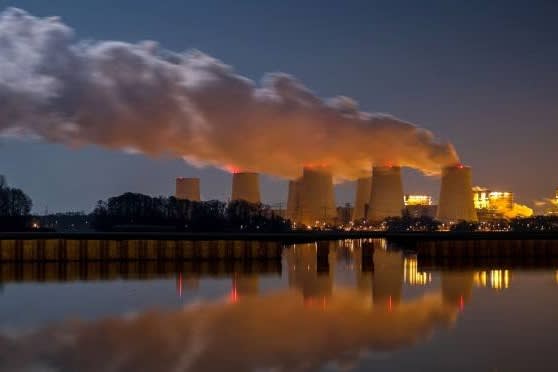US and EU-led pledge to slash methane emissions gathers support
Political support for a global agreement on methane emissions at the UN climate summit is building slowly, as another 25 countries joined the US and EU-led pledge to cut pollution from the potent greenhouse gas.
With the COP26 climate conference less than a month away, new support from Japan, Canada and Germany took the total to 34 parties, including the European bloc, that will back the pledge to reduce emissions by about a third over the next decade.
However, major emitters including China, India and Brazil are yet to sign up.
The bid to slash global methane emissions by 30 per cent from their 2020 levels by 2030 would reduce global warming by at least 0.2C by 2050, the initiative has estimated.
Although the gas lasts for less time in the atmosphere than carbon dioxide, it is about 28 times more potent as a factor in global warming as its properties trap more heat.
The methane reduction commitment is due to be formally launched at COP26, with policymakers including US president Joe Biden working to rally support for a global agreement ahead of the high-profile summit.

It was now “squarely on the agenda at a leader level priority”, said US climate envoy John Kerry. Tackling methane was the “single fastest strategy” to keeping the 1.5C goal within reach, he said.
The US-EU led initiative was launched in September with nine parties onboard, including the UK and Italy as joint partners in leading COP26.
The 34 parties that have now indicated their support collectively represent about 60 per cent of the global economy and a third of all methane emissions.
Kerry welcomed the new supporters but said a “critical mass” of “more than 100” countries was needed. He asked all signatories to “assume the responsibility and say, ‘I’m going to get two more countries to come on board’”.
European Commission executive vice-president Frans Timmermans said coordinating the initiative had been “quite a journey, and in such a brief period of time. If we act together we can really make a difference.”
Methane has risen up the political agenda this year as a key problem that must be tackled if the Paris accord goal of limiting global warming to 2C and ideally 1.5C above pre-industrial levels is to be kept alive.
Major sources of methane are gas pipeline leaks, ruminant animals including cows, rice production and waste facilities such as landfill sites. While tackling methane from the oil and gas sector is relatively simple, reducing the pollution from agriculture is much more difficult.
Carbon dioxide is “the most important” contributor to human-induced warming but methane is the next most significant, according to a landmark scientific report by the UN’s Intergovernmental Panel on Climate Change.
The gas contributed to about 0.5C of warming in 2010-2019 relative to 1850-1900 levels, while carbon dioxide produced about 0.7C of warming, the IPCC said.
Also on Monday more than 20 philanthropic groups, including Bill Gates’ Breakthrough Energy and Chris Hohn’s Children’s Investment Fund Foundation, said they would commit more than $200m on unspecified efforts to support methane reduction.
“Momentum is building for a methane moment at Glasgow,” said Fred Krupp, president of the Environmental Defense Fund, the non-profit advocacy group. “Cutting methane pollution is the fastest opportunity we have to help avert our most acute climate risks.”
Climate Capital

Where climate change meets business, markets and politics. Explore the FT’s coverage here.
Are you curious about the FT’s environmental sustainability commitments? Find out more about our science-based targets here